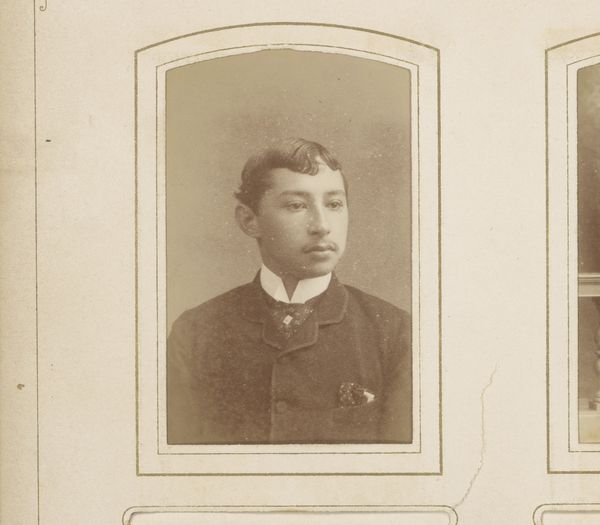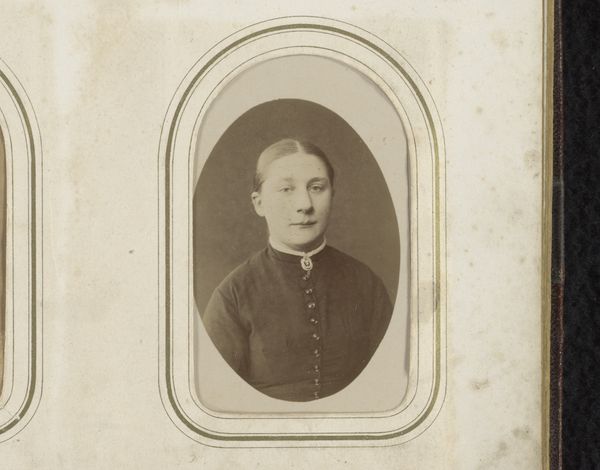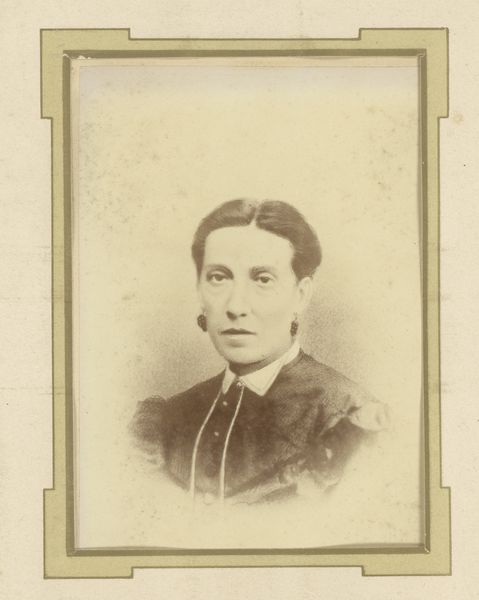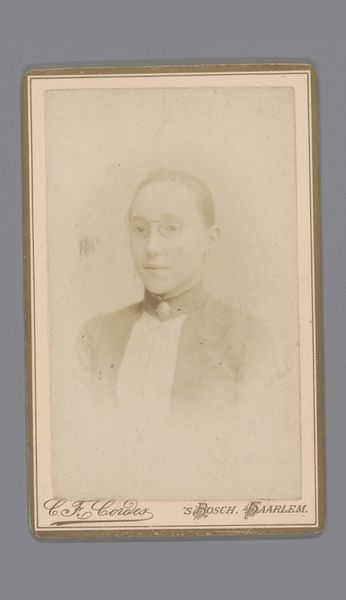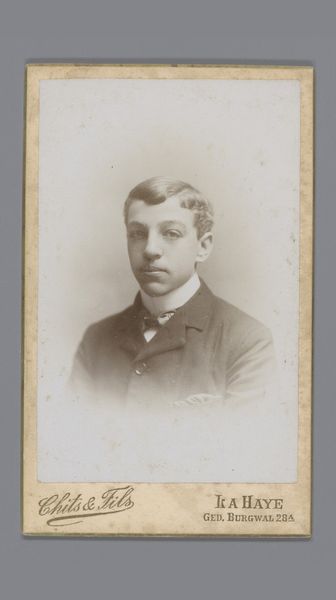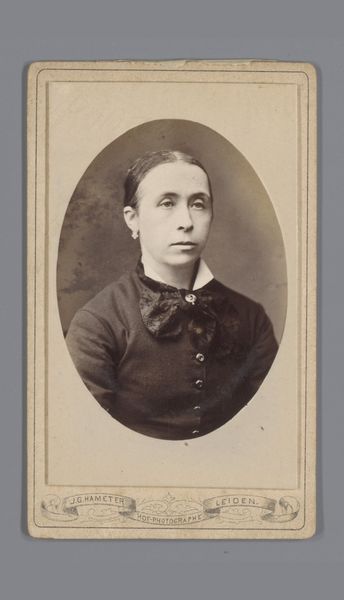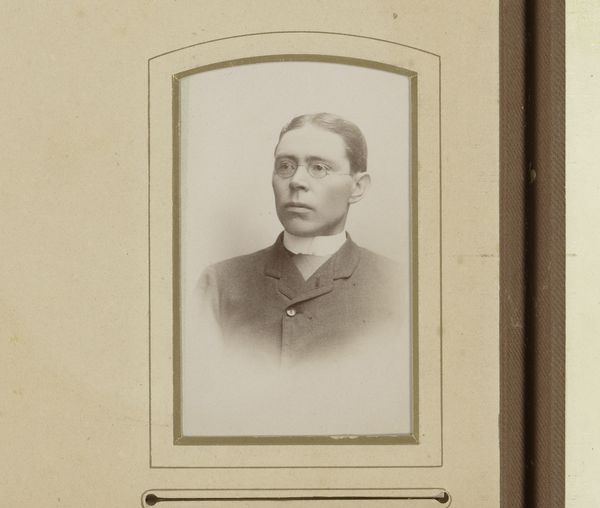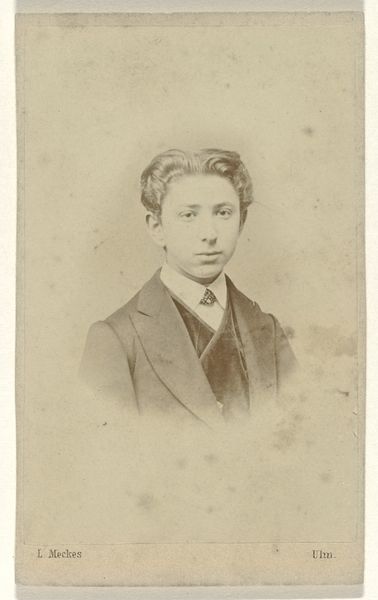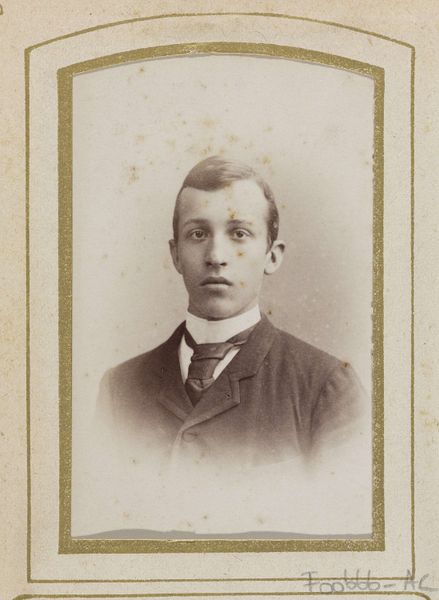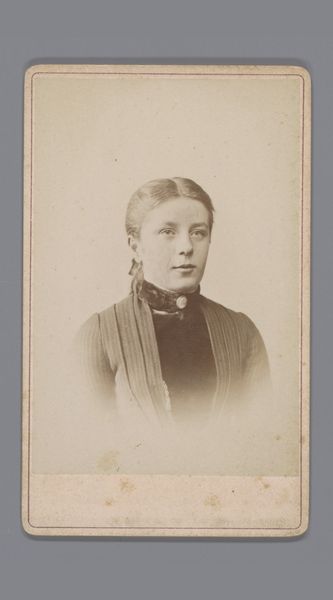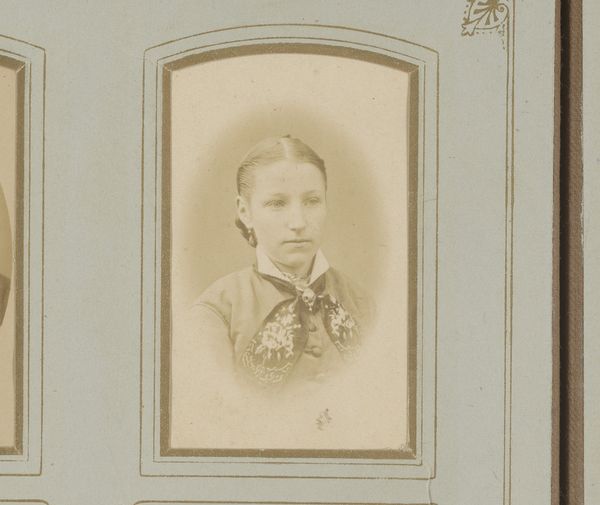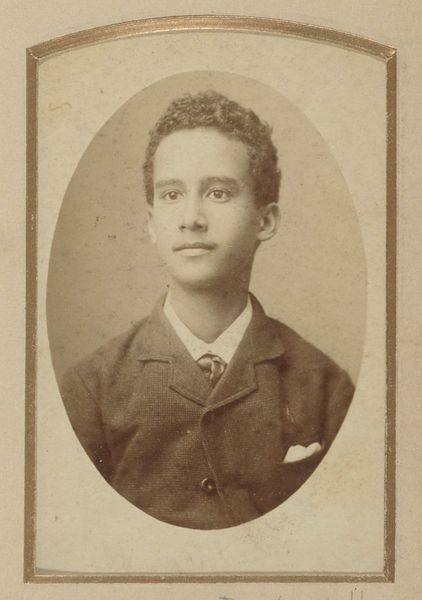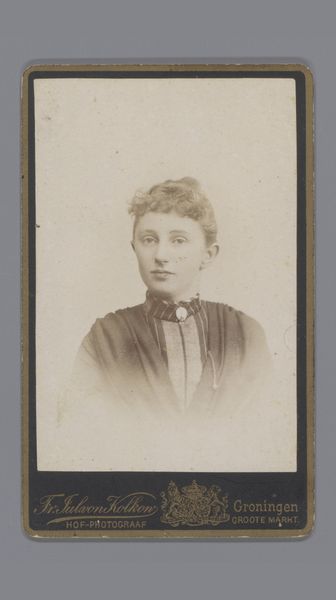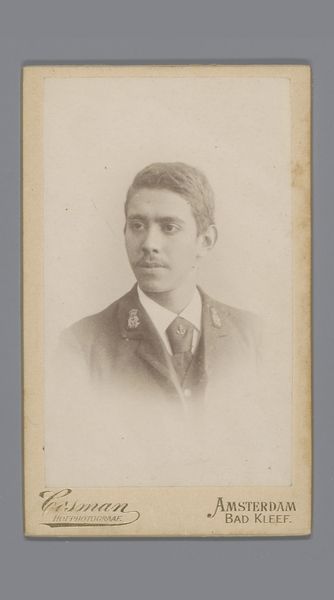
print, photography, gelatin-silver-print
#
portrait
# print
#
photography
#
historical photography
#
gelatin-silver-print
#
realism
Dimensions: height 83 mm, width 52 mm
Copyright: Rijks Museum: Open Domain
This is a portrait of a young man by Johan Christiaan Reesinck, and it was made using photographic processes. Photography in the 19th century was a complex interplay of chemistry and optics. Coating a metal or glass plate with light-sensitive emulsions, exposing it in a camera, and then developing the image was a laborious process, requiring expertise and precision. It's a far cry from the instant snapshots we're used to today. Consider the material reality of this object. Originally a fragile glass plate, carefully prepared, exposed, and developed, it stands as a testament to the photographer's skill. The sepia tones, a result of the chemical processes used, give the image a sense of nostalgia and distance. Each photograph, especially in this era, represents a significant investment of time and resources. This wasn't just about capturing a likeness; it was about documenting a moment, preserving memory, and participating in a rapidly evolving visual culture. Appreciating the materiality and making of this photograph allows us to see it not just as an image, but as a crafted object with deep social and cultural significance.
Comments
No comments
Be the first to comment and join the conversation on the ultimate creative platform.
